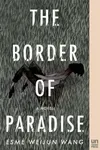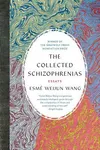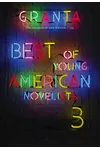Picture a Taiwanese-American storyteller who weaves raw, unflinching tales of mental illness and family ties—meet Esmé Weijun Wang! With her debut novel The Border of Paradise and the searing essay collection The Collected Schizophrenias, Wang has carved a unique space in contemporary literature. Her work, lauded for its lyrical precision and emotional depth, invites readers into the complexities of the human mind and the resilience of the spirit.
Born to Taiwanese immigrant parents, Wang’s journey as a writer is as compelling as her stories. From navigating schizoaffective disorder to founding a writing academy for those with limitations, she’s a beacon of creativity and advocacy. Let’s dive into the life, works, and lasting impact of this literary trailblazer!
The Making of Esmé Weijun Wang
Esmé Weijun Wang was born in the Midwest to Taiwanese parents, a cultural blend that shapes her storytelling. Raised with high expectations, she initially attended Yale University but faced mental health challenges that led her to transfer to Stanford, graduating in 2006. She later earned an MFA from the University of Michigan, where her thesis sparked her debut novel. Diagnosed with schizoaffective disorder in 2013 and late-stage Lyme disease in 2015, Wang turned personal struggles into literary fuel, blending raw honesty with analytical insight.
Esmé Weijun Wang’s Unforgettable Stories
Wang’s debut novel, The Border of Paradise (2016), is a gothic family saga exploring mental illness, migration, and intergenerational trauma. Following the Nowak family after the patriarch’s suicide, it weaves a haunting tale of isolation and forbidden love, earning praise as one of NPR’s Best Books of 2016. Critics lauded its multivocal prose and emotional depth, cementing Wang’s reputation as a bold new voice.
Her essay collection, The Collected Schizophrenias (2019), is a New York Times bestseller that shattered stereotypes about mental illness. Through 13 essays, Wang blends personal narrative with research, detailing her life with schizoaffective disorder. From the Cotard delusion—believing she was dead—to critiques of psychiatric care, the collection is both intimate and intellectual. It won the Graywolf Nonfiction Prize and a Whiting Award, with reviewers calling it “fearless” and “peerless.”
Wang’s style is a masterclass in balance: lyrical yet precise, personal yet universal. Her work tackles heavy themes—psychosis, chronic illness, cultural identity—with a clarity that invites empathy without sentimentality. She also champions marginalized voices, drawing from her Taiwanese-American, queer, and disabled identities.
Why Esmé Weijun Wang Matters
Esmé Weijun Wang’s impact transcends her books. By candidly sharing her experiences with schizoaffective disorder, she’s destigmatized mental illness, sparking vital conversations about psychiatric care and neurodivergence. Her founding of The Unexpected Shape Writing Academy empowers writers with disabilities or chronic illnesses, democratizing access to literary mentorship. Wang’s advocacy and artistry have made her a role model for resilience, showing that limitations can coexist with ambition.
Her work resonates globally, offering a window into the Asian-American experience and the complexities of mental health. As a Granta Best Young American Novelist and Whiting Award recipient, Wang is poised to shape literature for years to come.
About Esmé Weijun Wang
- Born: Midwest, USA, to Taiwanese parents
- Key Works: The Border of Paradise (2016), The Collected Schizophrenias (2019)
- Awards: Graywolf Nonfiction Prize (2016), Whiting Award (2018), Granta Best Young American Novelist (2017)
- Fun Fact: Wang mentors writers through her Unexpected Shape Writing Academy.
Snag The Collected Schizophrenias and dive into Esmé Weijun Wang’s brilliant, boundary-breaking world!


